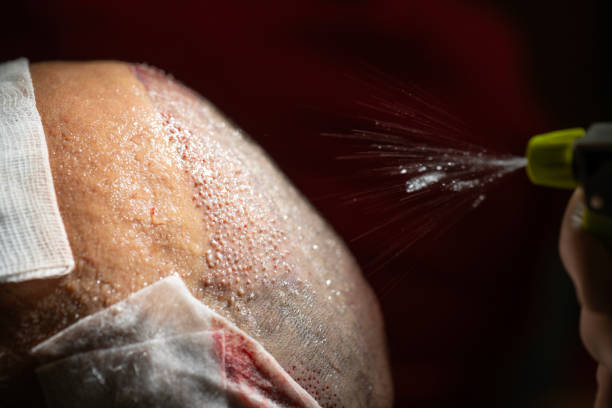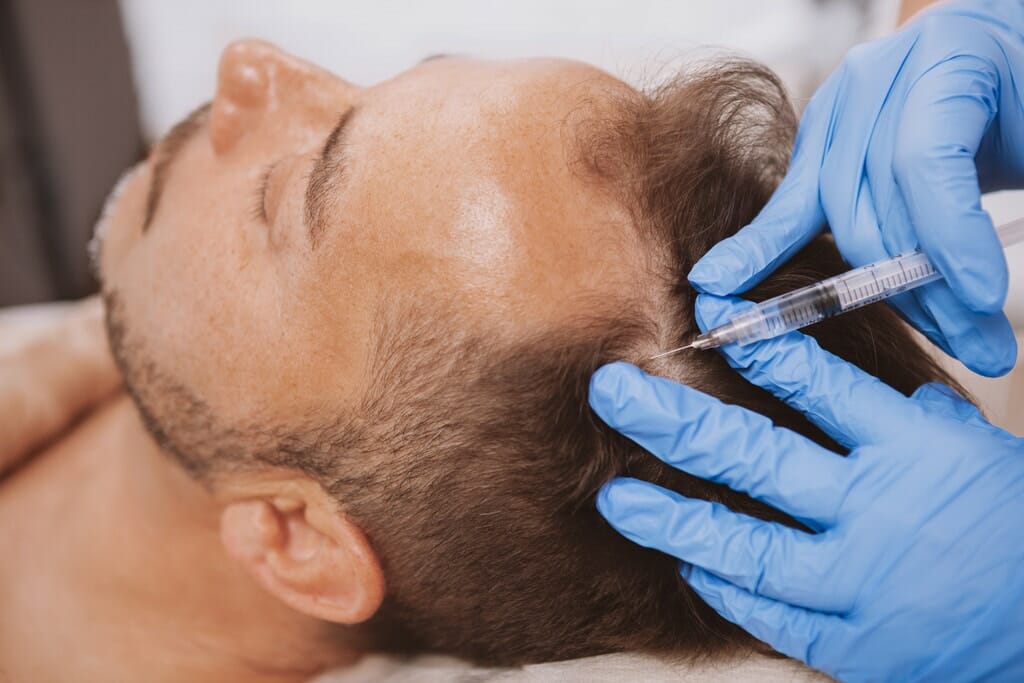If you are considering a Hair Transplant in Abu Dhabi, it’s essential to prepare properly to ensure the best possible outcome. Hair transplant surgery is a highly effective method for restoring lost hair and enhancing your natural appearance. However, like any surgical procedure, adequate preparation is key to achieving great results. In this article, we will guide you through the steps to take before undergoing a hair transplant in Abu Dhabi, from pre-operative consultation to post-surgery care.
Understanding the Procedure
Before preparing for a hair transplant, it is important to understand what the procedure involves. A hair transplant involves transferring hair follicles from one part of the scalp (usually the back or sides) to areas where hair is thinning or missing. There are two primary techniques for hair transplant surgery:
Follicular Unit Transplantation (FUT)
This technique involves removing a strip of skin from the donor area, dissecting it into follicular units, and transplanting them into the recipient area. It leaves a linear scar, but it allows for the transplantation of a large number of follicles in a single session.
Follicular Unit Extraction (FUE)
FUE involves extracting individual hair follicles from the donor area using a small punch tool. This method does not leave a visible linear scar and offers a more discreet option for hair restoration.
Discuss the pros and cons of each technique with your surgeon to determine which one is the best for your needs.

Researching Your Surgeon and Clinic
Choosing the right clinic and surgeon is one of the most crucial steps in preparing for a hair transplant. In Abu Dhabi, several reputable clinics offer high-quality hair transplant services. When researching potential clinics, consider the following factors:
- Surgeon Qualifications and Experience: Ensure that the surgeon is board-certified, highly experienced in hair transplant surgery, and specializes in the technique best suited to your needs.
- Clinic Reputation: Read patient reviews, check before-and-after photos, and ask for testimonials to assess the clinic’s track record.
- Technology and Techniques: Verify that the clinic uses the latest technology and follows best practices in hair transplant surgery.
- Consultation Process: A thorough consultation is vital. During your initial appointment, the surgeon should assess your hair loss, discuss your expectations, and create a customized treatment plan.
Pre-Operative Consultation
The consultation is the first step in the process of preparing for a hair transplant. During this meeting, the surgeon will examine your scalp, hair density, and the pattern of hair loss. They will also discuss your medical history, lifestyle, and any medications you are taking. The surgeon will help you set realistic expectations and explain what can be achieved based on your hair loss and donor hair quality.
Key Aspects Discussed During the Consultation:
- Suitability for the Procedure: Your surgeon will assess your age, hair loss pattern, and overall health to determine whether you are a good candidate for a hair transplant.
- Donor Area Assessment: The amount of available hair in the donor area will affect the success of the transplant. Your surgeon will evaluate this to ensure sufficient donor hair is available.
- Expected Results and Timeline: It’s important to understand that results take time. The transplanted hair will start to grow after a few months, and it may take up to a year to see full results.
Preparing Physically for the Procedure
Several physical preparations are required to ensure a smooth hair transplant experience. These steps will help optimize your recovery and minimize the risk of complications.
Avoid Smoking and Alcohol
Smoking and excessive alcohol consumption can impair blood circulation, affecting the healing process. It’s advisable to stop smoking and limit alcohol intake at least a week before the procedure to support optimal healing and reduce the risk of complications.
Discontinue Certain Medications
Your surgeon may advise you to stop taking certain medications before the surgery, especially those that can increase the risk of bleeding, such as blood thinners or aspirin. It is important to follow your surgeon’s instructions regarding medication.
Stay Hydrated
Proper hydration is essential before surgery, as it helps support the healing process. Drink plenty of water in the days leading up to the procedure.
Cleanse Your Scalp
In the days before the hair transplant, keep your scalp clean. Wash your hair with a gentle shampoo to remove dirt and excess oils, ensuring that the transplant site is free from any impurities.
Arrange for Time Off Work
Hair transplant surgery typically requires a recovery period, with some swelling and discomfort. Plan to take time off work or any activities that might stress your body after the procedure. Rest is essential to ensure that the transplanted follicles settle and begin to grow.
Mental Preparation and Expectations
While preparing physically for the surgery is essential, it’s also important to prepare mentally. Hair transplants are a significant commitment, and patience is crucial. Full results may take months to manifest, and it is important to maintain realistic expectations about the outcome.
Understand the Recovery Process
Recovery from a hair transplant can vary depending on the procedure and your overall health. Typically, you may experience some swelling, redness, and scabbing around the transplant area. Follow your surgeon’s aftercare instructions closely to minimize these symptoms.
Be Prepared for Post-Surgery Care
After your procedure, you will need to follow specific instructions for washing your scalp, avoiding direct sunlight, and managing discomfort. Make sure you understand the aftercare process, as this will play a critical role in ensuring the success of the transplant.
Day of the Procedure
On the day of the surgery, follow these guidelines to ensure a smooth process:
- Arrive on Time: Make sure you arrive at the clinic as instructed. You may be asked to refrain from eating or drinking a few hours before the surgery.
- Wear Comfortable Clothing: Choose loose, comfortable clothing to wear on the day of the procedure. Avoid tight clothing, especially around the neck or head area, to avoid any discomfort.
- Bring a Companion: If you feel nervous or unsure, bring a family member or friend along for support.
Post-Operative Care and Recovery
After your hair transplant, you will be given detailed instructions for recovery. These may include recommendations on washing your hair, managing swelling, and taking prescribed medications to aid recovery. Your surgeon will schedule follow-up appointments to monitor your progress and address any concerns.
Conclusion
Preparing for a hair transplant in Abu Dhabi involves both physical and mental preparation to ensure the best results. By choosing a qualified surgeon, understanding the procedure, and following pre-operative and post-operative instructions, you can help maximize the success of your transplant. While the results may take time to become fully visible, with proper care and patience, a hair transplant can significantly improve your appearance and confidence.
